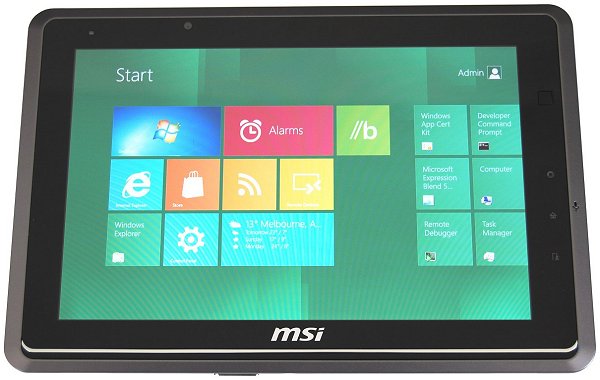We still have the better part of a year to wait until Windows 8 comes out -- sometime around October 2012 according to the latest rumors -- but information about potential pricing for Intel-powered tablets running Microsoft's upcoming operating system is already surfacing. According to DigiTimes, the devices could be priced in the $599 to $899 range, putting them at a disadvantage next to the iPad and Android tablets.
Apparently the issue here is that neither Microsoft nor Intel are willing to drop their prices for device manufacturers. The report notes that since Microsoft is attempting to merge the tablet and laptop market with Windows 8, essentially using the same full blown OS for both devices, lowering prices could seriously damage pricing in the traditional PC market and bring down their gross margin performance.

Unfortunately for Intel, Windows 8 is expected to support the ARM architecture, meaning vendors are likely to choose less-expensive yet very capable chips from Nvidia, Qualcomm and TI. This would most likely also result in tablets incapable of executing the current gamut of x86 Windows software.
If the rumors are true, Intel would be putting itself in quite a predicament, consideing it has yet to make any significant advances in the tablet market and consumers have shown almost no interest in $500 tablets other than the Apple iPad. On the other hand, high prices could also hurt Windows 8's chances on tablets right out of the gate. While the $599 to $899 and up range makes sense for laptops running a full blown copy of Windows 8, customers will have a hard time spending that much on tablets when Android alternatives start at $200.
https://www.techspot.com/news/47064-rumor-intel-based-windows-8-tablets-may-start-at-600.html